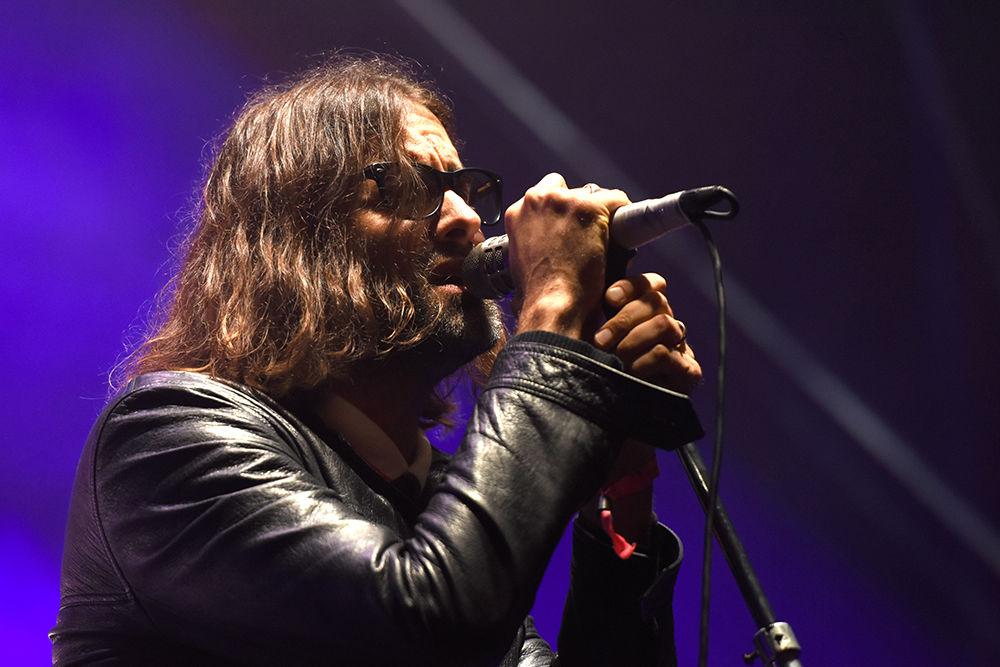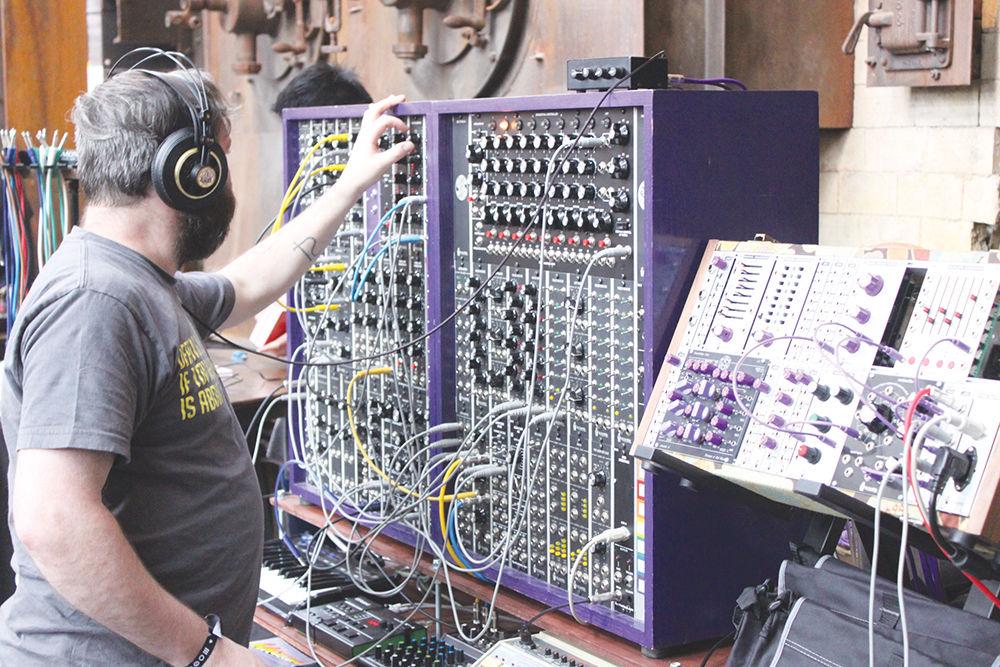Robert Moog began selling theremins, smallelectronic musical instruments, when he was 16 years old and used the money to pay for his education in electrical engineering and engineering physics, ultimately receiving degrees from Columbia University, Cornell University and the Berklee College of Music. He then used his engineering skills and knowledge to pursue and influence the unique intersection of technology and music, dedicating his work to creating innovative tools and instruments for musicians and artists.
Though Moog died in 2005, the electronic conference and music festival, fittingly named Moogfest, continues to explore the evolving bond between music and technology and invites people from multiple states and countries to become part of the conversation.
This year, Moogfest is returning to Durham May 18-21 after making its debut in the city in 2016. Though the four-day event provides live performances every night, it is more than just a music festival as it seeks to explore the relationship between advancing technology and music through performances, conversations, workshops, installations and more.
The festival began in 2004 as a tribute to Moog, and since then, Moogfest has grown and transformed each year to explore the future of music and technology, while also providing a space for artists, thinkers, inventors and entrepreneurs to reflect on current issues.
“We try to build an experience that exposes both participants and attendees to new ideas, and empowers them to take those ideas back to their communities to create something new,” said Emmy Parker, the co-creative director for Moogfest.
This year, the program is analyzing how technology can enhance sociopolitical action in light of current events, and to explore this theme, the festival is adding a Protest Stage to encourage conversation and change.
“Protest, in the sense of a positive instrument for change, is one of the most vital functions that music, art and technology can serve,” Parker said.
The Protest Stage will be led by local and international artists like Talib Kweli, Omar Souleyman, Mykki Blanco, BEARCAT and Pie Face Girls, MIT Open Doc Lab, NEW INC, and app developers at Goldsmiths University of London.
Taeyoon Choi from NEW INC is an artist and educator based in New York and Seoul who will be participating in the Protest Stage this year by leading a sign-making workshop.
“If we consider protest signs as a poetic medium for social engagement, a sign-making workshop is a space to develop your message by learning from people whose views and priorities may differ,” Choi said. “In the sign-making workshop, participants will be invited to make their own signs and join a conversation about the artistic intervention.”
Outside of the sign-making workshop, the Protest Stage will also include performances, talks and participatory technology experiments.
“By incorporating the concept of protest into the celebration of arts, technology and future thought, we can go beyond the basic format of a music festival and encourage participants to envision and ultimately help design future communities that work better for everyone,” Parker said.
Another new addition to this year’s Moogfest is a brand new, never-before-seen multimedia installation created by former R.E.M lead singer Michael Stipe.
“This is the type of artwork you would expect to have debuted in New York or Los Angeles, but it is free and accessible to all in Durham first,” Parker said.
Though the Protest Stage and Stipe Installation are new and unique to the event this year, the two are part of Moogfest’s broader focus on “Future Thought” and “Future Sound.”
During the day, attendees will have the opportunity to participate in “Future Thought” by learning from creative technologists, filmmakers and inventors through workshops, presentations, installations and conversations. These events invite participants to become a part of the discussion and encourage them to pursue change in their own communities.
Some of the events in the “Future Thought” category include four workshops on “augmenting the musical experience” from Georgia Tech’s Center for Music Technology, and two interactive lab sessions with Scott Metcalfe of the Peabody Institute of John Hopkins University.
The event transforms at night as musicians and bands including Flying Lotus, Animal Collective and Gotye explore “Future Sound” through performances in electronic and pop music.
Though the event focuses on the future of sound and thought, Parker believes that it is vital to remember the interconnectedness of past and present technologies and how they have influenced and continue to influence each other.
“As synthesizer designers, we are abundantly aware of how technology enhances the way human beings creatively express themselves,” Parker said. “Through a program featuring cutting edge music and technology presentations, Moogfest participants realize that these things don’t exist in a vacuum or purely for entertainment. Hopefully participants will be inspired to find and engage with these powerful connections in their own lives.”
An attendee of Moogfest makes music on a synthesizer in the Modular Marketplace Thurday May 19. Modular Marketplace, is a free, interactive exhibit set up in The Boiler Room at the Power Plant where participants can play with, test-drive, and experience the next generation of musical devices and meet their designers.














